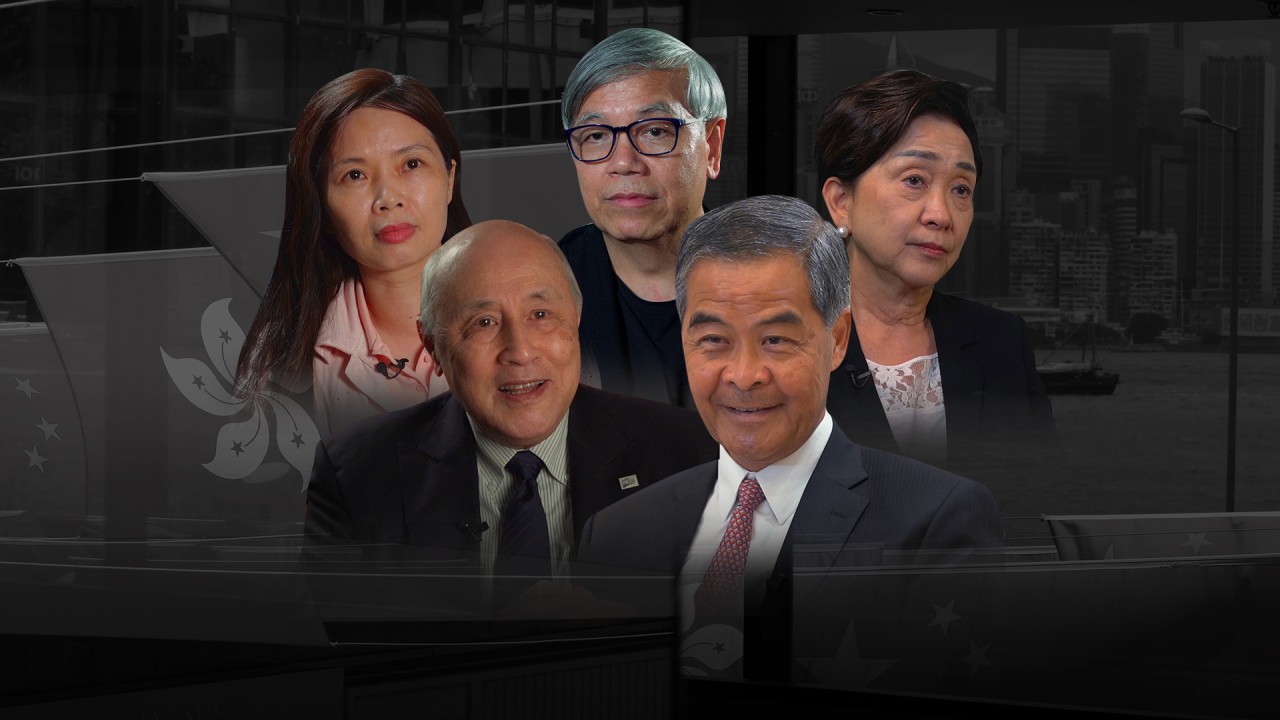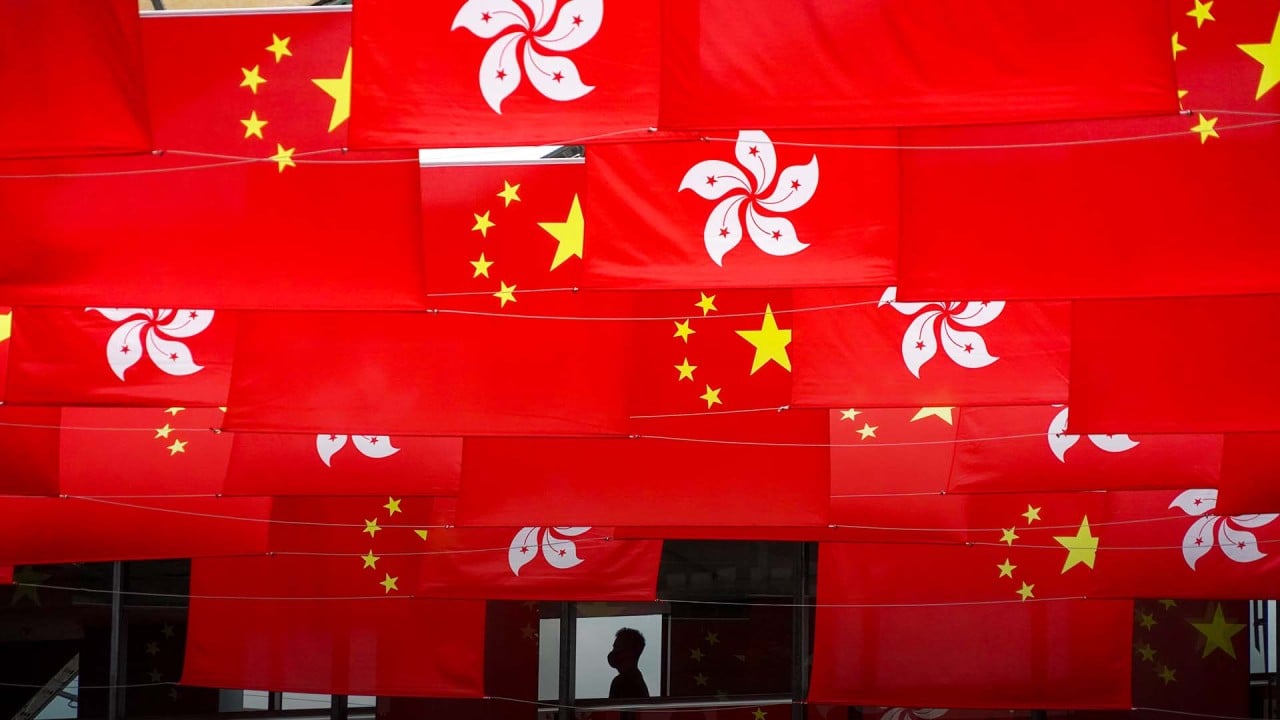
25:33
Hong Kong after the handover: the highs and lows of 25 years under ‘one country, two systems’
Hong Kong at 25: where mainland ‘drifters’ have made their home
- Covid-19 travel curbs and a strict national security law are spurring hundreds of thousands to leave Hong Kong, surveys warn
- But for thousands of gangpiao, or mainland ‘drifters’ who first arrived to work or study, Hong Kong is where life happens
But there are also droves of others, for whom Hong Kong is forever home.
“I once thought Hong Kong was my second hometown, but now it’s the first,” says Joan Wang, class of 2009 at the University of Hong Kong – the city’s No 1 institute of higher education.
Back then, she knew little about Hong Kong beyond the basic historical facts she had learned for a school competition to celebrate the city’s handover in 1997.
But 17 years on, that unfamiliar and apparently temporary stop has ended up bearing witness to every important stage in her adult life – her first job, getting married, buying her first home and starting a family.

Wang, 36, is now a Hong Kong permanent resident, one of the thousands of gangpiao, or “drifters” from the mainland, who initially came to study or work in the city, drawn by its proximity and close cultural ties with the Chinese mainland and then stayed on.
They make up a group of highly educated Chinese that have chosen to remain amid a so-called exodus of Hong Kong residents.
Hong Kong saw a record outflow of 89,200 residents in the year to June 2021, official data showed. According to immigration data in March, more than 94,000 Hong Kong residents had already departed by air since the start of this year, compared with 26,000 arriving, though whether the departures were permanent was unclear.
While there is no official data on gangpiao, media reports say more than 268,000 Hong Kong visas were granted from 2003 to 2020 to non-local students graduating in the city, most of them from the mainland.
About 80 per cent of this group were aged between 18 and 30, and more than 60 per cent held a postgraduate qualification, seen as an injection of fresh, young talent into an ageing city.
Xi hails ‘vitality’ of ‘one country, two systems’ in arrival speech in Hong Kong
Wang joined the financial sector after graduation and applied to become a permanent resident after completing the required seven years. But census data does not indicate how many other mainland citizens have chosen this option.
While many such new residents have assimilated into the fabric of Hong Kong, they can still be identified by family name, accent or their preference for Mandarin over Cantonese, the version of Chinese most commonly spoken in Hong Kong.
Such differences can sometimes drive a wedge between them and the locals, such as during the anti-government protests of 2019.
As Hong Kong marks the 25th anniversary of its return to Chinese sovereignty, the bitter memory of the protests still lingers in the minds of many.
What started out as peaceful marches against a controversial mainland extradition bill turned into violent demonstrations in the later half of 2019, with widespread vandalism targeting not only Hong Kong’s public property but also businesses and establishments with links to mainland China.
“It was a helpless time for me. It was heartbreaking when I saw damaged public property, when I saw some local friends’ comments in social media, and when I heard those who didn’t support protesters might be attacked,” Wang recalled. “I hope such moments will never occur in the coming years.”
2 Hong Kong teens sentenced for vandalising bakery in 2019 protests
Those thoughts were echoed by David Luo, who came to Hong Kong in 2016 on a dependent visa to reunite with his wife, also a gangpiao working in Hong Kong. Luo now works for his firm’s Hong Kong branch.
Until the 2019 protests broke out, Hong Kong represented good times for Luo, giving him time to appreciate its diverse and tolerant culture and in his words – re-educating him to be a truly open-minded person.
“Our office has people from around the world … and we get along very well,” said Luo, 33, father to two Hong Kong-born boys.
But the violent protests brought home to Luo the stark differences between mainland and Hong Kong people, even though they were all Chinese.
“It was a time when I was really afraid, but I was confident that the issue would ultimately be settled,” he said.
While the protests made Luo unsure about where the city was headed, its handling of the Covid-19 pandemic brought new reflections.
“I once thought the city government was too weak to counter the pandemic, not using the strong measures adopted in the mainland, but I know now that Hong Kong has used ways that are suitable for itself,” he said.
The Chinese mainland’s zero-Covid policy has meant repeated universal testing ordered by local governments and large-scale, if not citywide, lockdowns. But neither has happened in Hong Kong, despite a deadly fifth wave, even though its strict border controls and social gathering curbs have sparked business worries and fuelled a steady population outflow.
Hong Kong records more than 50,000 departures in first half of March
“Hong Kong took the correct measures to walk a middle path and keep the city linked to at least some parts of the outside world,” said Luo, who currently lives in Shenzhen with his family.
“This is a lesson I learned from Hong Kong, as a manager who frequently travels to the Chinese mainland and overseas, on how to best strike a balance during uncertainties.”
Looking ahead, Wang hopes the violence of 2019 never returns, and that “schools in Hong Kong could be more proactive in helping pupils to understand the history and developments of [mainland] China”.
Beijing’s objective is for Hong Kong and Macau to “integrate into the national development”. As of mid-2021, there were 538,800 Hongkongers living in mainland cities in the Greater Bay Area and Macau, a 4.2 per cent rise from 2013.
“The Greater Bay Area is also an opportunity for [us] gangpiao,” said Jude He, a Chinese University of Hong Kong graduate in his 30s and now living in Shenzhen, a power engine of the future multi-city hub.
“We, like local Hongkongers, also have the flexibility to both work and live in Hong Kong and other Greater Bay Area cities and we have the advantage of knowing China more deeply and having more contacts in the mainland.”




